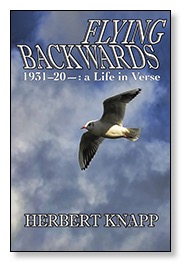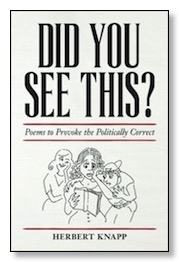Fourth State of the Art Post
There used to be a public for poetry. Today there isn’t. Why? There is one reason and one reason only. We have stamped out the minor leagues, and without the minor leagues (little leagues, and sandlot games), there are no major leagues. Yes, the academics keep giving prizes to poets they call major but it's all fake news. Nobody reads their poems .
Up until WW2 everybody agreed some poets and poems were better than others, but poetry was a game anyone could play. There were rhymes and metrical rules that were taught in school. Then the idea took hold that the rules were inhibiting free expression. So to free poets from the shackles of yesterday, we abandoned all rules. But the rules were not shackles; they were a baseline that gave significance to violations of the rules. No rules; no significance. Indeed, no rules; no readers.
The so-called Progressive educations consider themselves modern and up-to-date. No fad is too ephemeral for them to embrace. But they scorn history, and poetry is part of history. Instead of history (which significantly includes the word “story”), the Progressives teach Social Studies.(No stories, just facts).
The Progressive also scorn rules. They think of rules as fetters that prevent free expression. Have they never considered that without rules (grammar) intelligible speech is impossible? I guess not. If it occurs to them that rules are necessary, they assume the rules must come from an adult rule-giver. They have no faith in children’s ability to develop their own rules in order to play together. Rules, in their minds, come from a rule-book which is in the hands of a bureaucrat.
The Progressives also have an irrational antipathy to memorizing anything, especially “useless” poems. But since it is natural to memorize poems, Progressive cannot permit children to have any unsupervised playtime in which they might contaminate their minds with “useless” often politically incorrect traditional poems. Thus, they eliminated recess, replacing it with gym or exercise periods. But the informal learning that takes place on the playground is often of more lasting importance that the knowledge that sisal, flax, and hemp were exported by some country whose name you don’t remember.
A child may never learn the word “alliteration” but if he learns the playground rhyme that refers to the lunch provided by the school as consisting of “greasy, grimy gopher guts,” he understand and can recognize alliteration when he hears it. The child who recites one of the numerous variations of “I stand before you to stand behind you to tell you something I know nothing about” is well on his way to the mastery of rhetoric and to a joyful appreciation of the twists and turns of language. And the child who is taunted on the playground during recess doesn’t run to “a safe space.” He or she learns to respond with, “I’m rubber, you’re glue; what ever you say bounces off me and sticks to you!”
But progressive education isn’t the only thing responsible for the demise of poetry as a significant literary genre. There is also snobbishness. Before WW2 it was OK to like the poems of R.W. Service (“The Shooting of Dan McGrew”), Kipling, Millay, or Lizette Woodward Reese. But after the war, everybody went to college and learned that there were “good” poets and “bad” poets, and only stupid people like bad poets. But since the difference wasn’t clear to anyone but “literary experts” and nobody wanted to sound stupid, people simply stopped stopped reading poems. That way, they were never wrong.
I conclude this post with the last few lines of a poem written in 1945 and published in a small town newspaper in West Virginia. The author is a “sand lot” poet with no pretensions to literary excellence. But for him and for his audience, it was the content, the meaning of the poem that mattered, not the “elegant distribution of vowel sounds.” The poem is about the return of a home town boy who evaded the Japanese round up of American troops in the Philippines and spent the war leading a band of guerrillas in the jungle. I read about him in a book called Resolve“ by Bob Welch.The poem ends:
The folks are at the depot now
with gifts and things, no end.
I lift my face and give glad thanks
Above that I can say—
Because He’s made it possible—
FRANK’S COMIN’ HOME TODAY!
When amateur poets could write and publish poems like that to the general appreciation, there was a context—an atmosphere— in which literary poems could flourish. When that kind of `poetry became too uncool (too innocent, too “deplorable”) to write or to publish, Literary poetry withered and died.


